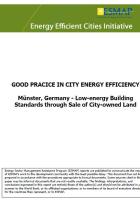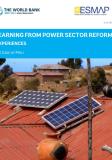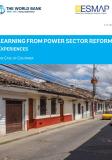Publications
By mandating low-energy building standards in sales contracts of city-owned land, the City of Münster (Germany) caused a market transformation that led to 80 percent of all new buildings constructed in 2010, even those not built on city-owned land, to follow the city’s energy efficiency requirements. The standard, locally known as Niedrig Energie Haus (NEH), imposes stringent thermal performance requirements for the building envelope which exceed the existing German federal building regulations by 30 percent.
The implementation of NEH led to the construction of over 5,600 low-energy housing units and 85 more energy efficient commercial buildings between 1997 and 2010, saving the city 13 million kWh per year while reducing annual CO2 emissions by at least 3,400 tons in the residential sector by 2010. The benefit-cost ratio to the city was over 6 to 1 and the estimated incremental cost to homeowners was, on average, about €2,600 per house (about 1.4 percent of construction costs). The transformative outcome and positive market reactions encouraged the City Council to propose a passive house standard in the fall of 2010.
The program was fairly low in cost, less than about a half million Euros, invested by the city to achieve substantial savings. However, some of the conditions were very unique; the city owned about 50 percent of the undeveloped land, city residents were supportive of broad scale climate measures, and homeowners had the financial means to absorb a modest incremental cost for the low-energy houses.
ESMAP. 2011. Good Practices in City Energy Efficiency: Munster, Germany - Low-energy Building Standards through Sale of City-owned Land. ESMAP Energy Efficient Cities Initiative. Washington, DC: World Bank.



